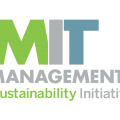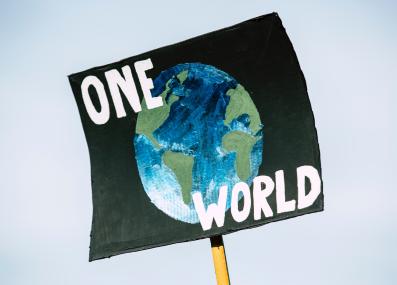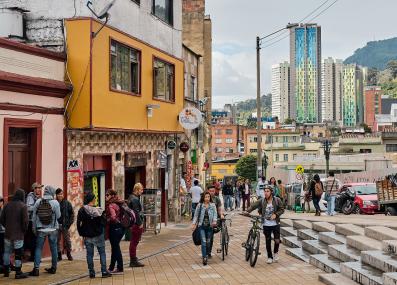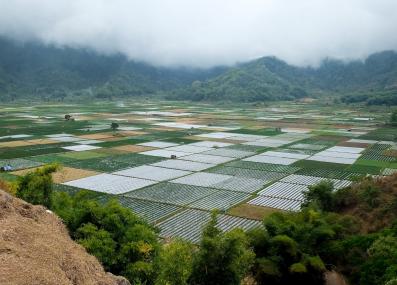Have a question?
What is “sustainability”? Is it the same thing as taking action on climate change?
Climate action is just one form of sustainability—a concept that asks us to see the big picture of what we are taking from the Earth, and how our actions affect future generations.
March 30, 2021
You might have heard the word “sustainability” in conversations about climate change—as in a “sustainable economy,” or a “sustainable energy system.” In the context of climate change, this usually means changing our energy, transportation and other systems so that they don’t contribute to warming the planet. But sustainability is a broader concept than just preventing climate change.
“What's so interesting about sustainability, and why I've built my career around it, is that it's complex,” says Julie Newman, MIT’s first Director of Sustainability. “It involves people and the environment, extraction, disposal, use—so it's really looking at the complexity of the world and how humans interact with it.” From an environmental perspective, sustainability is concerned with the resources we take from the Earth and how we use them, with an emphasis on not exhausting what the planet can supply.
The other common thread in sustainability is a focus on how our actions today will impact the world tomorrow. “I see it as setting a vision for the future,” says Newman. This idea is also reflected in the United Nations’ concept of “sustainable development,” which is used to set global goals and direct international aid. The UN defines “sustainable development” as “development that meets the needs of the present without compromising the ability of future generations to meet their own needs.”1 This definition goes far beyond just environmental concerns: it also looks at economic prosperity, water and food access, education, and other needs that contribute to people’s quality of life.
A warming planet is a major challenge for sustainability. Human activities that contribute to climate change are, by definition, not sustainable, as they alter the very planet we depend on for all our needs. But climate change also makes it harder to find sustainable solutions to other problems. “Shifting biodiversity and shifting climate conditions affect our food sources, rising sea levels, the way we design our cities, and more,” says Newman. Many challenges for sustainability both affect and are affected by the climate: for instance, a warming Earth will make it harder to grow enough food,2 and clear-cutting forests to grow that food contributes to climate change.3
As with climate action, sustainability can also be a lens for thinking about personal choices and behaviors. But Newman points out that no individual can live a “sustainable” life on their own. “People often assume that it’s just about solar panels, recycling, and biking,” she says. But unless governments, communities and businesses make it easy to, say, get to work and the grocery store by bicycle, or turn recycled materials into new products, these personal acts do not make for a sustainable system that can grow with the needs of the people it serves.
“The other biggest misconception about sustainability and climate change is that zero is the answer,” says Newman—whether that means zero waste, or zero carbon emissions. In fact, she says, sustainability is a balancing act, which aims to provide enough resources for people to live full, healthy lives, without compromising humanity’s future. “We really need to look at it through an ecological framework of understanding. What is it that we need to ensure we have for a balanced ecosystem that leads to thriving human health and environmental health conditions?”
It can be useful to keep the definition of sustainability in mind as we work on solutions to climate change. A good framing question for every decision about climate change might be: Is this action going to prevent people from enjoying a high quality of life in the future?
1 United Nations Sustainable Development Goals: The Sustainable Development Agenda. Accessed March 30, 2021.
2 See our Explainer on Food Systems and Agriculture.
3 See our Explainer on Forests and Climate Change.










